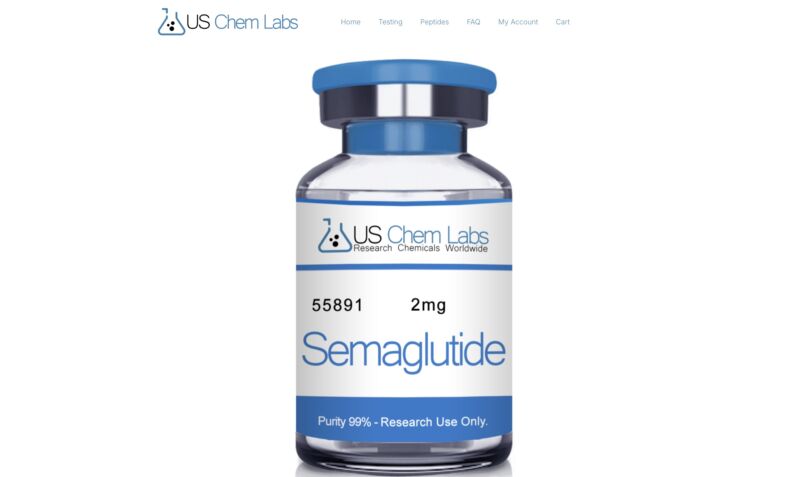

Buying counterfeit weight loss drugs from illegal online pharmacies that don’t require prescriptions is, in fact, a very bad idea, according to a study published Friday in JAMA Network Open.
The counterfeit drugs are sold as equivalents to the blockbuster semaglutide drugs, Ozempic and Wegovy, which are prescription only. When researchers got their hands on three illegal versions, they found that the counterfeit drugs had low-purity semaglutide, had dosages that exceeded the labeled amount, and one had signs of bacterial contamination.
The three substandard drugs tested came from three different illegal online pharmacies, which sold them as generic semaglutide drugs for weight loss, appetite suppression, diabetes, and cardiovascular health. However, the researchers, led by scientists at the University of California, San Diego, and the University of Pécs in Hungary, had initially tried purchasing counterfeit drugs from six such sellers.
Three of the illegal pharmacies, which specifically sold Ozempic knockoffs, never delivered the drugs after researchers paid for them. Instead, the researchers were hit with “nondelivery” scams, in which the sellers requested additional, hefty payments, supposedly needed to get through customs. These extra fees ranged from $650 to $1,200—much more than what the researchers paid for small dosages of the counterfeit drugs, which ranged from $113 to $360 across the six sellers.
Rogue pharmacies
The Ozempic scams were run out of the rogue online pharmacies: weightcrunchshop.com, puremedsonline.com, and genius-pharmacy.com. The three pharmacies that delivered dubious drugs included semaspace.com, uschemlabs.com, and biotechpeptides.com.
Two of the sellers—semaspace.com and uschemlabs.com—have already received warning letters from the Food and Drug Administration for selling unapproved, misbranded drugs. At the time of publication, the Semaspace website was no longer reachable. The US Chem Labs site was still available, but their semaglutide vials were all listed as out of stock.
The study’s findings, while unsurprising, highlight the risk people may take in efforts to get hold of the popular drugs. Steep prices, lack of insurance coverage, and drug shortages have kept the drugs out of reach for many who could benefit from them. Compounding pharmacies have stepped in to make copycat versions. While these are legal and can come from legitimate pharmacies—ones that are properly registered and require prescriptions—they also carry risks. Compounded drugs are not approved by the FDA and may pose safety and efficacy risks. Last week, the FDA warned of increasing reports of people overdosing on semaglutide products made in compounding pharmacies, leading some patients to be hospitalized.